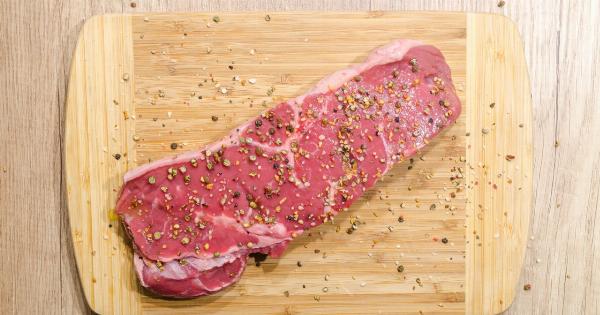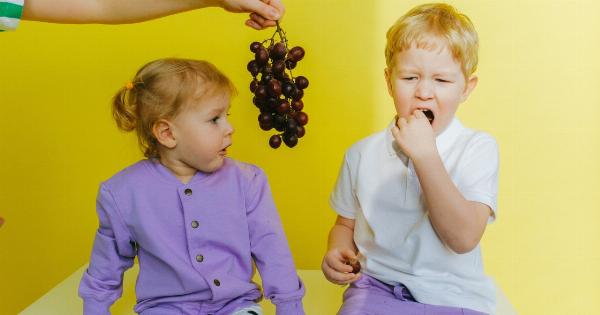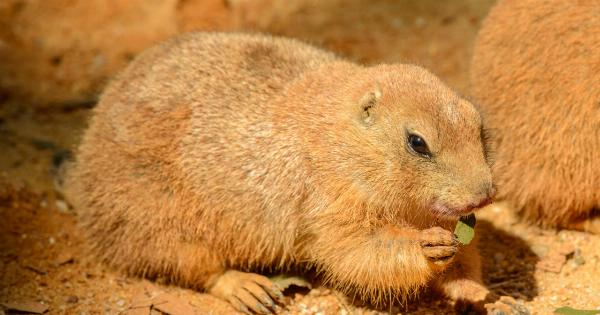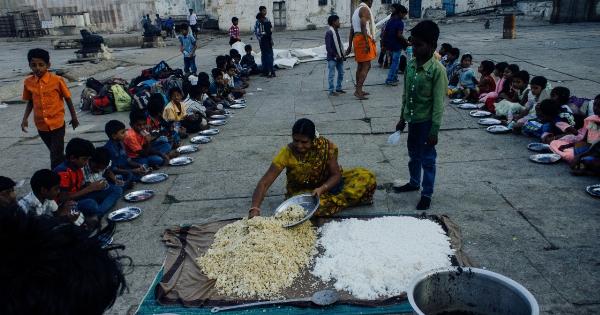Feeding your baby is a crucial aspect of their growth and development. As a parent, it is natural to want to provide the best nutrition for your little one. However, not all baby foods are created equal.
In fact, there are certain foods that should be avoided due to their potential risks and harm to your baby’s health. Here are 11 baby foods that you need to avoid:.
1. Honey
Honey is a delicious and natural sweetener for adults, but it can be extremely harmful to babies. It contains spores of a bacterium called Clostridium botulinum, which can cause infant botulism.
Babies have underdeveloped immune systems, making them more susceptible to this type of infection. Avoid giving honey to babies under 12 months of age.
2. Cow’s milk
Cow’s milk is a common allergen and can cause digestive issues in babies. It is also difficult for babies to digest the proteins present in cow’s milk, which can lead to gastrointestinal discomfort.
Breast milk or formula milk is the best source of nutrition for babies under 12 months of age.
3. Salt
While a little bit of salt is necessary for our bodies, babies under 12 months of age should not consume added salt. Their kidneys are not yet fully developed and cannot efficiently process excess sodium.
Too much salt in a baby’s diet can put a strain on their kidneys and increase the risk of health problems. Avoid adding salt to your baby’s food and be cautious about pre-packaged baby foods that may contain added salt.
4. Sugar
Just like salt, babies do not require added sugar in their diet. Too much sugar can contribute to childhood obesity, tooth decay, and unhealthy eating patterns.
Introducing sugary foods early on can also lead to a preference for sweet foods, making it challenging to introduce healthier options later on. Limit your baby’s exposure to sugary foods and opt for natural sweetness from fruits instead.
5. Choking hazards
Choking is a serious risk for babies, especially when it comes to certain foods. Avoid giving your baby foods that are small, hard, round, or sticky as they can become lodged in their throat and cause choking.
Common choking hazards include whole grapes, popcorn, nuts, raw carrots, and chunks of meat. Always cut food into small pieces and supervise your baby during mealtime.
6. Nuts and nut butter
Nuts are a great source of healthy fats and protein for adults, but they can pose a choking hazard for babies. Additionally, nuts are highly allergenic, and it is recommended to avoid introducing them to babies before the age of one.
Nut butters, particularly those made from peanuts, can also cause allergies and should be introduced cautiously under the guidance of a pediatrician.
7. Citrus fruits
While fruits are generally healthy, citrus fruits like oranges, lemons, and grapefruits may be too acidic for a baby’s delicate digestive system. The high acid content can cause diaper rash, irritation, and even an upset stomach.
If you want to introduce citrus fruits to your baby, wait until they are at least one year old and offer them in small quantities.
8. Highly processed and packaged foods
Highly processed and packaged foods may be convenient, but they often contain additives, preservatives, and excessive amounts of salt and sugar. These foods lack essential nutrients and can contribute to poor eating habits.
It is best to provide your baby with fresh, homemade meals whenever possible to ensure they receive optimal nutrition.
9. Shellfish
Shellfish, including shrimp, crab, and lobster, are common allergens and can cause severe allergic reactions in some babies. It is recommended to avoid introducing shellfish until your child is at least 12 months old.
If you have a family history of shellfish allergies, consult with an allergist before introducing them to your baby.
10. Raw or undercooked eggs
Raw or undercooked eggs can contain harmful bacteria such as salmonella. Babies have weaker immune systems than adults, making them more susceptible to foodborne illnesses.
Avoid feeding your baby foods that contain raw or undercooked eggs, such as homemade mayonnaise or certain desserts. Always ensure eggs are cooked thoroughly before offering them to your little one.
11. Caffeine
Caffeine is a stimulant that can negatively affect a baby’s developing central nervous system. It can interfere with their sleep patterns, cause irritability, and even lead to dehydration.
It is crucial to avoid giving your baby any caffeinated beverages or foods containing caffeine, such as coffee, tea, or chocolate.
Conclusion
When it comes to feeding your baby, it is important to make informed choices to promote their health and well-being.
Avoiding the mentioned foods can significantly reduce the risk of allergies, digestive issues, choking hazards, and other potential health problems. Remember to always consult with your child’s pediatrician before introducing any new foods into their diet.






























